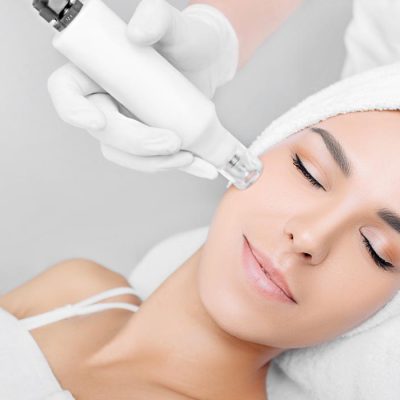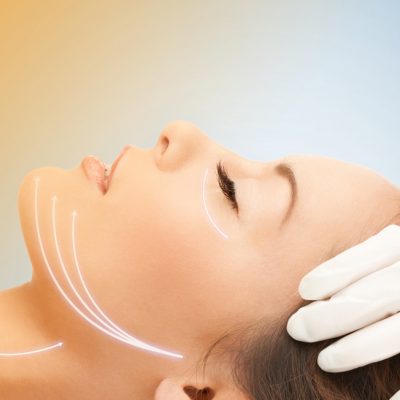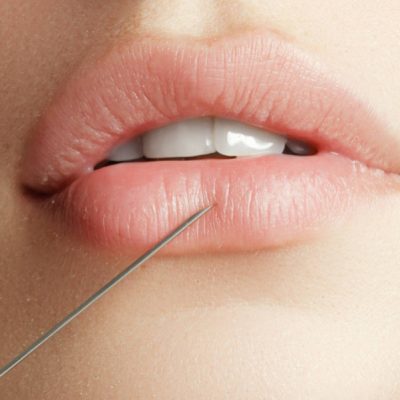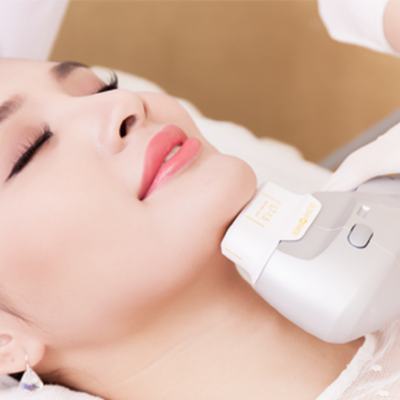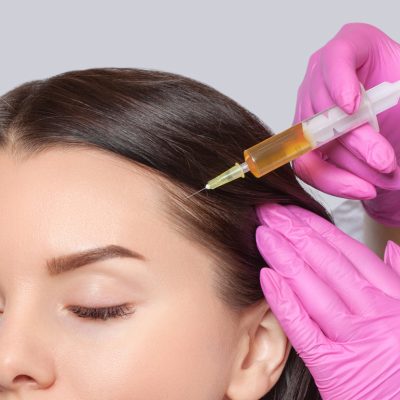There are several different skin types, including normal, oily, dry, combination, and sensitive. Each skin type requires different care to maintain its health and appearance.
Facials are a popular skincare treatment that can benefit all skin types, but the type of facial recommended will depend on your individual skin type and concerns. Here are some general guidelines:
- Normal skin: If you have normal skin, you have a well-balanced complexion that’s not too dry or too oily. You can benefit from a variety of facials, but a hydrating facial that includes gentle exfoliation and moisturizing is a good option.
- Oily skin: If you have oily skin, you may experience excess sebum production, which can lead to breakouts and a shiny appearance. A facial that targets excess oil production, such as a deep-cleansing or purifying facial, can be beneficial.
- Dry skin: If you have dry skin, you may experience flakiness, roughness, and tightness. A facial that focuses on hydration and moisturization, such as a nourishing or hydrating facial, can help to soothe and hydrate your skin.
- Combination skin: If you have combination skin, you may have both oily and dry areas on your face. A facial that combines deep cleansing and hydration can be beneficial, such as a customized facial that targets your specific concerns.
- Sensitive skin: If you have sensitive skin, you may experience redness, irritation, and inflammation easily. It’s important to choose a facial that is gentle and non-irritating, such as a calming or soothing facial that uses gentle ingredients and techniques.
It’s important to note that everyone’s skin is unique, and what works for one person may not work for another. It’s always best to consult with a licensed esthetician who can assess your skin type and recommend a customized facial treatment plan that will work best for you.

Table of Contents
Normal skin
Normal skin is a well-balanced skin type that is not too oily or too dry. It has a smooth texture, even tone, and is generally free of blemishes. Normal skin looks healthy and radiant, and it is the least problematic of all skin types.
If you have normal skin, you have a well-functioning skin barrier that protects your skin from environmental damage and moisture loss. However, even if you have normal skin, it’s important to take care of it to maintain its health and appearance.
Some tips for caring for normal skin include:
- Cleansing
- Moisturizing
- Sun protection
- Exfoliating
- Eating a healthy diet
- Staying hydrated
- Getting enough sleep
cleansing normal skin
If you have normal skin, you should cleanse your skin regularly to remove dirt, oil, and impurities that can accumulate on the skin’s surface. Here are some tips for cleansing normal skin:
- Choose the right cleanser: Look for a gentle, pH-balanced cleanser that is suitable for normal skin. Avoid harsh soaps or cleansers that can strip your skin of its natural oils.
- Use lukewarm water: Use lukewarm water to wet your face before applying the cleanser. Hot water can damage your skin and cause dryness.
- Massage your skin: Use your fingertips to gently massage the cleanser into your skin in circular motions. Be sure to cover your entire face, including your neck and hairline.
- Rinse thoroughly: Rinse your face thoroughly with lukewarm water to remove all traces of the cleanser. Be sure to rinse your hairline, jawline, and neck as well.
- Pat dry: Use a clean, soft towel to pat your skin dry. Avoid rubbing your skin, as this can cause irritation.
- Follow up with a moisturizer: After cleansing, apply a lightweight moisturizer to keep your skin hydrated and healthy.
It’s important to cleanse your skin twice a day, in the morning and at night, to keep it clean and healthy. However, if you wear makeup or have been sweating, you may need to cleanse your skin more frequently.
Remember, everyone’s skin is unique, and what works for one person may not work for another. If you have normal skin but are experiencing any issues, such as dryness or acne, it’s best to consult a dermatologist or licensed esthetician for advice on the best cleansing routine for your skin type and concerns.
Moisturizing normal skin
Moisturizing is an important step in any skincare routine, even if you have normal skin. Moisturizers help to keep your skin hydrated, soft, and supple, and they can also help to prevent premature aging. Here are some tips for moisturizing normal skin:
- Choose the right moisturizer: Look for a lightweight, non-greasy moisturizer that is suitable for normal skin. Avoid heavy creams that can clog your pores.
- Apply after cleansing: After cleansing your skin, apply moisturizer while your skin is still slightly damp. This can help to lock in moisture and keep your skin hydrated.
- Use a gentle touch: Use your fingertips to apply moisturizer, and be gentle. Avoid tugging or pulling at your skin.
- Focus on dry areas: Pay extra attention to any areas of your skin that tend to be dry, such as your cheeks or forehead.
- Use sunscreen: If your moisturizer doesn’t contain sunscreen, be sure to apply sunscreen separately to protect your skin from sun damage.
- Adjust for the season: In colder, drier months, you may need a heavier moisturizer to keep your skin hydrated. In warmer, more humid months, a lightweight moisturizer may be sufficient.
- Don’t overdo it: While it’s important to keep your skin hydrated, using too much moisturizer can cause your skin to become oily or clogged. Use a pea-sized amount of moisturizer for your entire face.
- Listen to your skin: If you notice any changes in your skin’s texture or appearance, such as dryness or breakouts, adjust your moisturizer as needed.
Remember, everyone’s skin is unique, so it may take some trial and error to find the right moisturizer for your skin type and concerns. If you’re unsure about which moisturizer to use, speak with a dermatologist or licensed esthetician for advice.
Sun protection for normal skin
Sun protection is important for all skin types, including normal skin. Even if you don’t burn easily, exposure to the sun’s harmful UV rays can cause premature aging, sun damage, and an increased risk of skin cancer. Here are some tips for sun protection for normal skin:
- Wear sunscreen: Use a broad-spectrum sunscreen with at least SPF 30 every day, even on cloudy days. Apply it generously to all exposed skin, including your face, neck, ears, and hands.
- Reapply often: Reapply sunscreen every two hours, or more often if you’re swimming or sweating.
- Seek shade: Avoid being in direct sunlight during peak hours, typically between 10 a.m. and 4 p.m.
- Wear protective clothing: Cover up with lightweight, long-sleeved shirts, pants, and wide-brimmed hats when you’re in the sun.
- Wear sunglasses: Protect your eyes by wearing sunglasses that block at least 99% of UV rays.
- Be mindful of reflective surfaces: Water, snow, and sand can reflect the sun’s rays and increase your risk of sun damage. Be extra careful when you’re near these surfaces.
- Avoid tanning beds: Tanning beds emit UV rays that can cause skin damage and increase your risk of skin cancer.
Remember, even if you’re not spending a lot of time outdoors, you still need to protect your skin from the sun. UV rays can penetrate windows and causedamage to your skin, so it’s important to wear sunscreen and seek shade when you’re indoors near windows as well.
If you have normal skin, you may prefer a lightweight, non-greasy sunscreen that won’t clog your pores or leave a residue on your skin. Look for sunscreens that are labeled “oil-free” or “non-comedogenic,” which means they won’t cause breakouts.
Overall, sun protection is an important part of any skincare routine, and it’s never too late to start protecting your skin from the sun’s harmful rays. If you have any concerns about sun damage or skin cancer, speak with a dermatologist for advice and treatment options.
exfoliating for normal skin
Exfoliating can be beneficial for normal skin, as it helps to remove dead skin cells and improve skin texture. Here are some tips for exfoliating normal skin:
- Choose the right type of exfoliant: Look for a gentle exfoliant that is suitable for normal skin. Avoid harsh scrubs or exfoliants that can damage your skin.
- Don’t overdo it: Exfoliate no more than once or twice a week to avoid over-exfoliating. Over-exfoliating can cause irritation, dryness, and sensitivity.
- Be gentle: Use a light touch when exfoliating, and avoid scrubbing too hard. Apply gentle pressure and let the exfoliant do the work.
- Focus on problem areas: Pay extra attention to any areas of your skin that tend to be dry or rough, such as your elbows, knees, or heels.
- Follow up with moisturizer: After exfoliating, apply a lightweight moisturizer to keep your skin hydrated and healthy.
- Adjust for the season: In colder, drier months, you may need to exfoliate less often to avoid dryness. In warmer, more humid months, you may need to exfoliate more often to prevent clogged pores.
Remember, everyone’s skin is unique, so it may take some trial and error to find the right exfoliant for your skin type and concerns. If you’re unsure about which exfoliant to use or howoften to exfoliate, speak with a dermatologist or licensed esthetician for advice. They can recommend the best exfoliation routine for your skin type and concerns.
Some common types of exfoliants for normal skin include:
- Chemical exfoliants: These are exfoliants that use alpha-hydroxy acids (AHAs) or beta-hydroxy acids (BHAs) to gently dissolve dead skin cells. AHAs are water-soluble and work on the surface of the skin, while BHAs are oil-soluble and can penetrate deeper into the pores. Examples of AHAs include glycolic acid and lactic acid, while salicylic acid is a common BHA.
- Physical exfoliants: These are exfoliants that use physical particles, such as sugar or salt, to gently scrub away dead skin cells. Be sure to choose a physical exfoliant with gentle particles that won’t cause micro-tears in your skin.
- Enzyme exfoliants: These are exfoliants that use natural enzymes, such as papaya or pineapple enzymes, to dissolve dead skin cells. Enzyme exfoliants are gentle and less abrasive than physical exfoliants.
Again, it’s important to choose an exfoliant that is suitable for your skin type and concerns. If you have normal skin, you can enjoy a wide range of exfoliants, but it’s important to listen to your skin and adjust your routine asneeded.
Eating a healthy diet for normal skin
Eating a healthy diet is important for maintaining healthy skin, even if you have normal skin. A balanced diet that includes a variety of nutrient-dense foods can help to provide your skin with the vitamins and minerals it needs to stay healthy and radiant. Here are some tips for eating a healthy diet for normal skin:
- Eat plenty of fruits and vegetables: Fruits and vegetables are rich in vitamins, minerals, and antioxidants that can help to protect your skin from free radical damage and promote healthy cell growth. Aim for a variety of colors and types to get a wide range of nutrients.
- Choose whole grains: Whole grains, such as brown rice, quinoa, and whole-wheat bread, are rich in fiber and can help to regulate blood sugar levels. Stable blood sugar levels can help to prevent inflammation, which can contribute to skin problems such as acne and premature aging.
- Include healthy fats: Healthy fats, such as those found in nuts, seeds, avocados, and fatty fish, can help to keep your skin hydrated and supple. They also provide essential fatty acids that your body needs for healthy cell function.
- Limit processed foods: Processed foods, such as sugary snacks, fried foods, and refined carbohydrates, can contribute to inflammation and skin problems. Limit your intake of these types of foods and focus on whole, nutrient-dense foods instead.
- Stay hydrated: Drinking plenty of water can help to keep your skin hydrated and healthy. Aim forat least 8 cups of water per day, and more if you’re active or in a hot climate.
- Include protein: Protein is essential for healthy skin, as it provides the building blocks for collagen and elastin, which help to keep your skin firm and elastic. Good sources of protein include lean meats, poultry, fish, beans, tofu, and nuts.
- Be mindful of food sensitivities: Some people may be sensitive to certain foods, such as dairy, gluten, or soy, which can contribute to skin problems. If you suspect that a particular food is causing issues with your skin, consider eliminating it from your diet or speaking with a healthcare professional.
Remember, a healthy diet is just one piece of the puzzle when it comes to maintaining healthy skin. Other factors, such as sun protection, regular exercise, and stress management, are also important. If you have concerns about your skin, speak with a dermatologist or licensed esthetician for advice on the best skincare routine for your skin type and concerns.
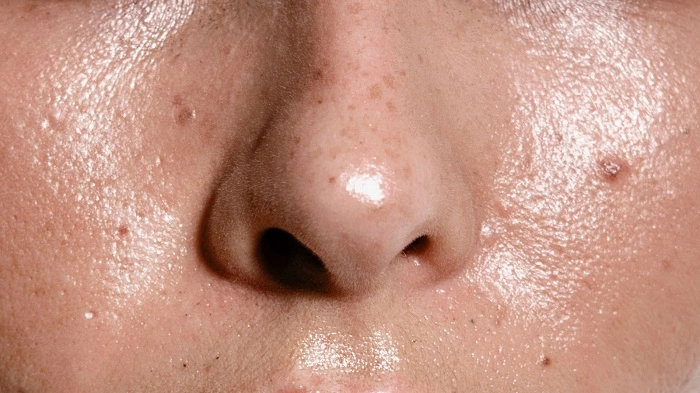
Oily skin
Oily skin is a skin type that produces an excess amount of sebum, which is the natural oil produced by the skin. Oily skin can be caused by a combination of genetics, hormones, and environmental factors. Some of the characteristics of oily skin include:
- Shiny, greasy appearance
- Enlarged pores
- Prone to breakouts and acne
- Thick, rough skin texture
Oily skin care
If you have oily skin, it’s important to care for it properly to prevent breakouts and maintain a healthy, balanced complexion. Here are some tips for Oily skin care:
- Cleansing: Use a gentle, oil-free cleanser to remove excess oil and impurities from your skin. Look for a cleanser that contains salicylic acid or benzoyl peroxide, which can help to prevent breakouts.
- Toning: Use a toner with salicylic acid or witch hazel to further remove excess oil and tighten pores.
- Moisturizing: Even oily skin needs moisture, so use a lightweight, oil-free moisturizer to keep your skin hydrated. Look for a moisturizer that is labeled “non-comedogenic,” which means it won’t clog your pores.
- Sun protection: Protect your skin from sun damage by using a broad-spectrum sunscreen with at least SPF 30. Look for a light, oil-free sunscreen that won’t clog your pores.
- Exfoliating: Regular exfoliation can help to remove dead skin cells and unclog pores, which can be especially important for oily skin. However, be careful not to over-exfoliate, as this can damage your skin. Choose a gentle exfoliant, such as one containing alpha-hydroxy acids (AHAs) or beta-hydroxy acids (BHAs), and use it no more than once or twice a week.
- Avoid over-washing: While it’s important to keep your skin clean, over-washing can actually stimulate your skin to produce more oil. Stick to washing your face twice a day, and avoid scrubbing too hard or using hot water.
- Use non-comedogenic products: Look for skincare and makeup products that are labeled “non-comedogenic” or “oil-free,” which means they won’t clog your pores.
- Don’t touch your face: Avoid touching your face with your hands, as this can transfer oil and bacteria to your skin and contribute to breakouts.
- Adjust your diet: Some research suggests that a diet high in sugar and processed foods can contribute to oily skin. Try to eat a balanced diet that includes plenty of fruits, vegetables, whole grains, and lean protein.
Remember that everyone’s skin is unique, so it may take some trial and error to find the right skincare routine for your oily skin. If you’re struggling with oily skin or acne, speak with a dermatologist or licensed esthetician for advice on thebest skincare routine and products for your skin type and concerns.
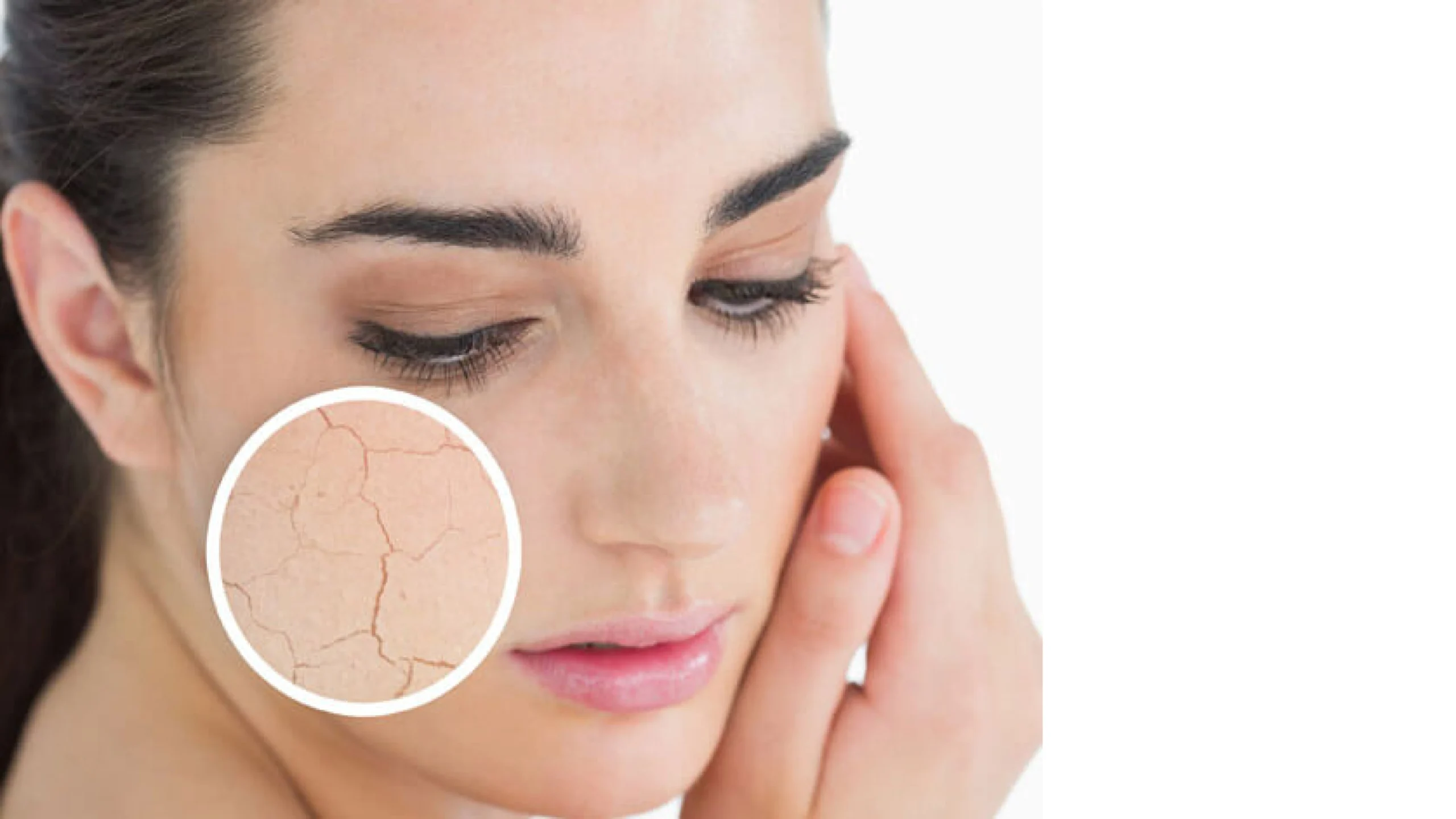
Dry skin
Dry skin is a skin type that lacks sufficient moisture and natural oils, which can cause it to feel tight, flaky, and itchy. Dry skin can be caused by a variety of factors, including genetics, environmental factors, and certain medical conditions. Some of the characteristics of dry skin include:
- Tight, uncomfortable feeling
- Flaky or rough texture
- Dull or ashy appearance
- Prone to fine lines and wrinkles
Dry skin care
Dry skin can be uncomfortable and even painful if not properly cared for. Here are some tips for Dry skin care:
- Choose a gentle cleanser: Look for a gentle, fragrance-free cleanser that won’t strip your skin of its natural oils. Avoid hot water, which can further dry out your skin.
- Moisturize regularly: Apply a rich, hydrating moisturizer to your skin twice a day, preferably after showering or bathing when your skin is still damp. Look for a moisturizer that contains ingredients like hyaluronic acid, glycerin, and ceramides, which can help to lock in moisture.
- Protect your skin from the sun: Use a broad-spectrum sunscreen with at least SPF 30 to protect your skin from the sun’s damaging UV rays. Look for a moisturizer that contains sunscreen to simplify your routine.
- Avoid harsh products: Avoid using harsh soaps, alcohol-based toners, and other products that can further dry out your skin. Look for gentle, fragrance-free products that are specifically formulated for dry skin.
- Exfoliate gently: Regular exfoliation can help to remove dead skin cells and improve skin texture, but be careful not to over-exfoliate, as this can cause further dryness and irritation. Choose a gentle exfoliant, such as one containing alpha-hydroxy acids (AHAs) or fruit enzymes, and use it no more than once or twice a week.
- Use a humidifier: Dry air can exacerbate dry skin, so use a humidifier to add moisture to the air in your home.
- Drink plenty of water: Staying hydrated by drinking plenty of water can help to improve your skin’s overall health and hydration.
- Adjust your diet: Eating a balanced diet that includes plenty of fruits, vegetables, and healthy fats can help to improve your skin’s overall health and hydration. Consider incorporating foods that are rich in omega-3 fatty acids, such as fatty fish, nuts, and seeds, which can help to improve skin elasticity and hydration.
- Avoid hot showers and baths: Hot water can further dry out your skin, so try to stick to lukewarm water when showering or bathing.
- Be gentle with your skin: Avoid rubbing or scratching your skin, which can further irritate dry skin. Pat your skin dry after showering or bathing, and avoid using rough towels.
Remember, everyone’s skin is unique, so it may take some trial and error to find the right skincare routine for your dry skin. If you’re struggling with dry skin or have concerns about your skin’s health, speak with a dermatologist or licensed esthetician for advice on the best skincare routine and products for your skin type and concerns.

Combination skin
Combination skin is a skin type that is characterized by having both oily and dry areas on the face. Typically, the T-zone (forehead, nose, and chin) tends to be oily, while the cheeks and temples are dry. Combination skin can be caused by a variety of factors, including genetics, hormonal imbalances, and environmental factors. Here are some tips for caring for combination skin:
- Cleansing: Use a gentle, non-foaming cleanser to remove dirt and impurities from your skin without stripping it of its natural oils. Focus on the oily areas of your face, such as the T-zone, and be gentle on the dry areas.
- Toning: Use a toner with salicylic acid or witch hazel to further remove excess oil and tighten pores on the oily areas of your face.
- Moisturizing: Use a lightweight, oil-free moisturizer on the oily areas of your face and a richer, hydrating moisturizer on the dry areas. Apply moisturizer while your skin is still damp after cleansing to lock in moisture.
- Sun protection: Protect your skin from sun damage by using a broad-spectrum sunscreen with at least SPF 30. Look for a lightweight, oil-free sunscreen that won’t clog your pores.
- Exfoliating: Regular exfoliation can help to remove dead skin cells and improve skin texture, but be careful not to over-exfoliate, as this can cause further dryness andirritation. Use a gentle exfoliant, such as one containing alpha-hydroxy acids (AHAs) or fruit enzymes, and use it no more than once or twice a week.
- Use non-comedogenic products: Look for skincare and makeup products that are labeled “non-comedogenic” or “oil-free,” which means they won’t clog your pores.
- Adjust your diet: Eating a balanced diet that includes plenty of fruits, vegetables, and healthy fats can help to improve your skin’s overall health and hydration. Consider incorporating foods that are rich in omega-3 fatty acids, such as fatty fish, nuts, and seeds, which can help to improve skin elasticity and hydration.
- Be mindful of your skin’s needs: Pay attention to how your skin is feeling and adjust your skincare routine accordingly. If your skin is feeling oily, focus on mattifying products for the T-zone. If it’s feeling dry, use a richer moisturizer on the dry areas.
Remember, everyone’s skin is unique, so it may take some trial and error to find the right skincare routine for your combination skin. If you’re struggling with combination skin or have concerns about your skin’s health, speak with a dermatologist or licensed esthetician for advice on the best skincare routine and products for your skin type and concerns.

Sensitive skin
Sensitive skin is a skin type that is easily irritated by certain skincare products, environmental factors, and other stimuli. People with sensitive skin may experience symptoms like redness, itching, dryness, and flaking, and may be more prone to conditions like eczema and rosacea. Sensitive skin can be caused by a variety of factors, including genetics, hormonal imbalances, and environmental factors like pollution or harsh weather conditions.
Some common triggers for sensitive skin include:
- Skincare products containing harsh ingredients, fragrances, or preservatives
- Environmental factors like sun exposure, wind, or cold temperatures
- Stress and anxiety
- Certain foods and beverages, such as alcohol or spicy foods
- Medical conditions like eczema or rosacea
If you have sensitive skin, it’s important to be gentle with your skin and avoid using products and ingredients that can cause irritation or inflammation. Look for skincare products that are labeled “fragrance-free,” “hypoallergenic,” or “for sensitive skin,” and patch test new products before using them on your face. Avoid using hot water when washing your face, and use a gentle, fragrance-free moisturizer to keep your skin hydrated.
If you’re struggling with sensitive skin or have concerns about your skin’s health, speak with a dermatologist or licensed esthetician for advice on the best skincare routine and products for your skin type and concerns. They may recommend specific ingredients or treatments to help soothe and protectyour sensitive skin.
Sensitive skin care
Sensitive skin requires extra care and attention to avoid irritation and inflammation. Here are some tips for sensitive skin care:
- Choose gentle, fragrance-free products: Avoid skincare products that contain harsh ingredients, fragrances, or preservatives that can irritate sensitive skin. Look for products that are labeled “fragrance-free,” “hypoallergenic,” or “for sensitive skin.”
- Patch test new products: Before using a new skincare product, patch test it on a small area of skin to see if it causes any irritation or allergic reactions.
- Avoid hot water: Hot water can further irritate sensitive skin, so use lukewarm water when showering or bathing.
- Moisturize regularly: Use a gentle, fragrance-free moisturizer to keep your skin hydrated. Look for a moisturizer that contains soothing ingredients like aloe vera or chamomile.
- Use sun protection: Protect your skin from the sun’s damaging UV rays by using a broad-spectrum sunscreen with at least SPF 30. Look for a sunscreen that is labeled “hypoallergenic” or “fragrance-free.”
- Avoid exfoliating: Exfoliating can be too harsh for sensitive skin, so avoid using scrubs or other exfoliants. Instead, use a gentle cleanser that won’t strip your skin of its natural oils.
- Be mindful of your diet: Certain foods can trigger skin reactions in people with sensitive skin. Consider keeping a food diary totrack any reactions and avoid foods that seem to cause problems.
- Manage stress: Stress can trigger skin reactions in people with sensitive skin, so try to manage stress through practices like meditation, yoga, or deep breathing.
- Be gentle with your skin: Be gentle when washing or drying your face, and avoid rubbing or scratching your skin. Pat your skin dry after cleansing or bathing with a soft towel.
- Consult a dermatologist: If you’re struggling with sensitive skin or have concerns about your skin’s health, speak with a dermatologist or licensed esthetician for advice on the best skincare routine and products for your skin type and concerns.
Remember, everyone’s skin is unique, so it may take some trial and error to find the right skincare routine for your sensitive skin. Be patient and gentle with your skin, and don’t be afraid to seek the advice of a skincare professional if you’re struggling with irritation or other skin concerns.
More Posts
- What is micropigmentation? Everything about it
- what is mesoneedling
- Rejuvenation with Electroneedling
- What is stretch marks? 5 Cause and method of treatment
- types of fillers
- Skin rejuvenation methods and treatments
- Pregnancy acne treatment in Dubai
- The Benefits of Forma Treatment
- redness after hydrafacial
- mesotherapy aftercare
- Neck Thread Lift
- Chin Thread Lift
- Forehead Thread Lift
- Nose Thread Lift
- Dubai Eyebrow Thread Lift
- Face Thread Lift Dubai
- Cleansing facial pores
- Professional Skin Analysis and Recommendations
- even Skin Tone and Texture (improve,Clarification,serum)
- Anti Aging Effects
- Relaxation and Stress Relief with a facial
- Hydration and Moisturization
- Deep Cleansing And Exfoliation : A Comprehensive Guide
- The Benefits of Facial Massage
- Facials for acne-prone skin
- Facials for oily skincare routine
- skincare routine for sensitive skin
- Skin types and facials:Normal skin,Oily skin,Dry skin,Sensitive skin
- DIY facial recipes
- Benefits of facials 5 Benefits
- Different types of facials




